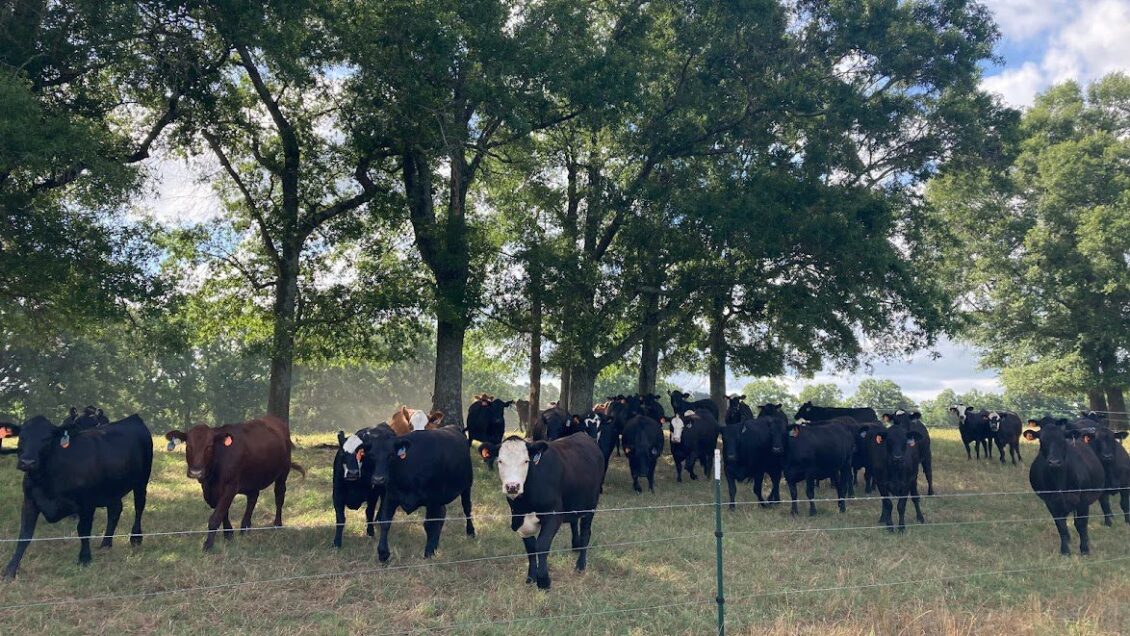
BLACKVILLE, S.C. — Silvopasture is an ancient farming practice that integrates trees, pastures and livestock, to help farmers increase profits, support livestock production and protect the climate.
The Clemson University Cooperative Extension Service is offering a program this spring to teach South Carolina producers about the establishment, management and economics of silvopasture systems on their properties.
Silvopasture Systems in the Southeast is a program developed by the Clemson Extension Livestock and Forages, and the Forestry and Wildlife Resources teams, together with forage specialists from Virginia Tech University and the University of Tennessee. It consists of two webinars and a field day.
“Silvopasture involves growing trees and grazing livestock on the same site,” said Janet Steele, Clemson area forestry and wildlife agent. “We’re holding this program to show South Carolina producers how they can use silvopasture to enhance productivity and protect the climate, as well as diversify income sources.”
The webinars are free and will be held via Zoom from 1 p.m. to 3 p.m. (EST) on March 7 and March 14.
The March 7 webinar will feature presentations from professors and forages specialists John Fike from Virginia Tech University and Bruno Pedreira from the University of Tennessee. Fike will give an “Introduction to silvopasture production systems.” Pedreira’s seminar will focus on “Animal health and environmental benefits of the use of silvopasture systems.”
The March 14 webinar will feature a roundtable discussion led by Liliane Silva, Clemson forages research and Extension specialist, and Steele, with agricultural professionals, producers and Extension personnel. The discussion will focus on relevant topics and presenters will share experiences and challenges related to silvopasture systems in South Carolina and the southeastern United States.
To register for the webinars, go to http://tinyurl.com/SilvoWeb0324
A field day will be held from 8:30 a.m. to noon on April 11 in Varnville, South Carolina. Exact location will be shared upon registration. Cost to attend the field day is $15. To register for the field day, go to http://tinyurl.com/SilvoField0424.
Topics to be covered during the field day include an overview of silvopasture, including information about the different types of systems, establishment and management strategies. Field day participants will also learn about the benefits of including a silvopasture system in their operations, such as diversified income and ecosystem services delivery.
Other field day topics include establishing a silvopasture system in woodlands by Steele. Silva will address how to establish pastures and manage livestock in a silvopasture system and the microclimate and animal health benefits from using these systems.
Alton Smith, field tour host and owner of Smith Forest Management, will talk about challenges and experiences in using a silvopasture system for commercial livestock production.
A tour will also be included in field day activities.
For more information, contact Janet Steele, jmwatt@clemson.edu.
Silvopasture Survey
Clemson University is conducting research on silvopasture perceptions and use in the southeastern United States. Anyone currently using or interested in using/learning about silvopasture is encouraged to participate. Producer input is appreciated. The survey is 14 questions and should not take more than 10-15 minutes. All responses remain anonymous and confidential with Clemson University.
Survey link: https://clemson.ca1.qualtrics.com/jfe/form/SV_1I9tlb2WdRgHNCm
(Highlight link and right click to open or copy link and paste in address bar.)
-END-
Get in touch and we will connect you with the author or another expert.
Or email us at news@clemson.edu
